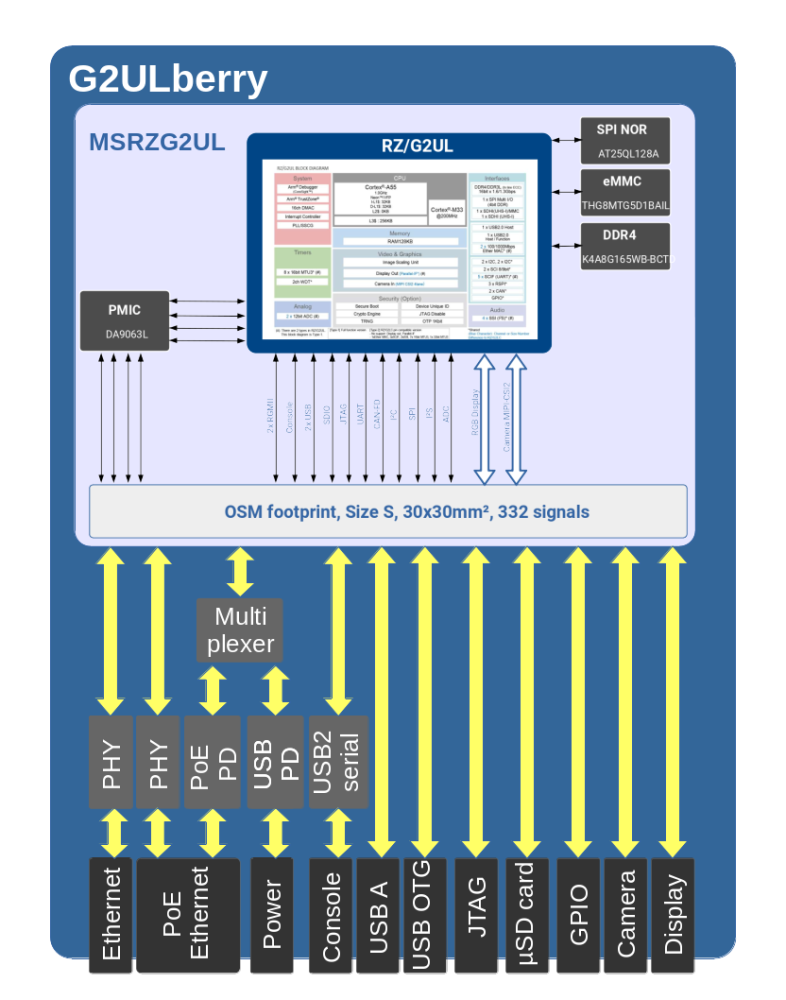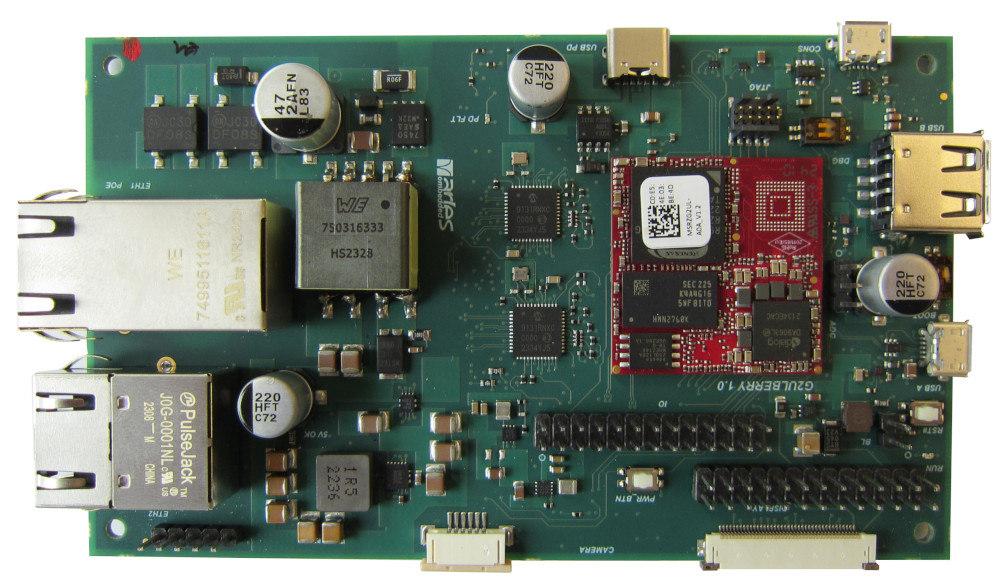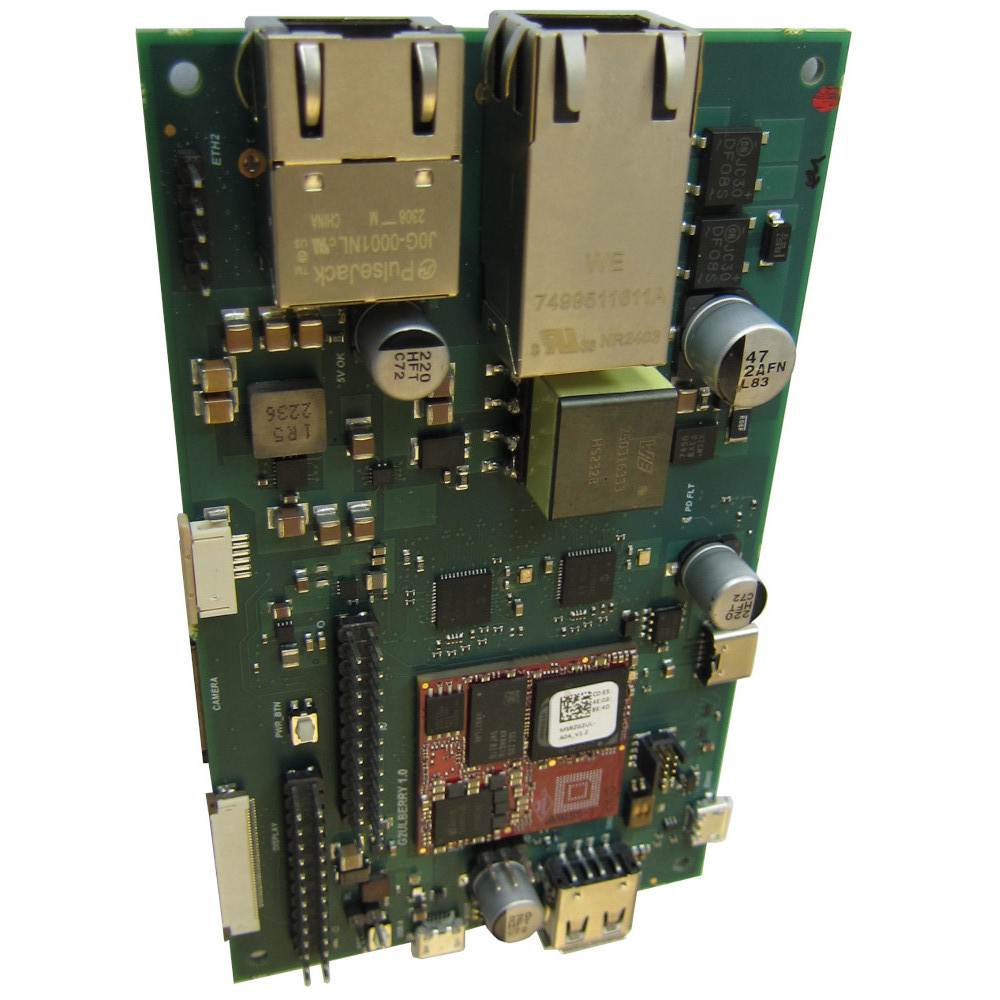G2ULberry
Application Board for the MSRZG2UL OSM SoM

The G2ULberry baseboard is build around the MSRZG2UL System on Module. The G2ULberry supports users to have a smooth start-up with the new CPU architecture RZ/G2UL by Renesas. It supports all necessary features to make first steps with the CortexA55 CPU architecture, develop and debug drivers and the bootloader and even to use it in prototype setups.
The MSRZG2UL is based on Renesas RZ Family architecture offering high-performance 64-bit CortexA55 core. The MSRZG2UL combines compact design and a wide range of services, bringing low power consumption, thermal efficiency and low-cost to embedded systems.
The RZ/G2UL general-purpose microprocessor units (MPUs) are built around a 64-bit CortexA55 CPU core. Peripheral functions include support for multiple interfaces, such as two Gigabit Ethernet channels, two USB 2.0 channels, and two CAN channels, as well as dual A/D converter modules, making it ideal for applications such as entry-class social infrastructure gateway control and industrial gateway control.
Features
- MSRZG2UL-A0A System on Module
- Renesas RZ/G2UL
- 512MB DDR4 RAM
- no eMMC NAND Flash
- 128MBit SPI-NOR
- -25°...+85°C
- two Ethernet ports 1000MBit/s on RJ45
- console via USB to UART
- USB2.0 Host
- USB2.0 OTG
- RGB TFT with touchscreen on fpc-connector
- MIPI-CSI camera on fpc-connector
- GPIO
- SD-card interface
- Power supply via
- USB PD or
- Power-over-Ethernet
Block Diagram

Pictures


Order Codes
G2ULberry-A0A
supporting
- MSRZG2UL-A0A System on Module
- Renesas RZ/G2UL
- 512MB DDR4 RAM
- no eMMC NAND Flash
- 128MBit SPI-NOR
- -25°...+85°C
- two Ethernet ports 10/100/1000MBit/s on RJ45
- console via USB to UART
- USB2.0 Host
- USB2.0 OTG
- 2xI2C
- GPIO
- SD-card interface
- 5V single voltage supply via USB
The idea of all Open Standard Modules is to create a new, future proof and versatile standard for small-size, low-cost embedded computer modules, combining the following key characteristics:
- Completely machine processible during soldering, assembly and testing
- different possible packages for direct PCB soldering without connector
- Pre-defined soft- and hardware interfaces
- Open-Source in soft- and hardware
The Open Standard Module specification allows developing, producing and distributing embedded modules for the most popular MCU32, ARM and RSICV architectures. For a growing number of IoT applications this standard helps to combine the advantages of modular embedded computing with increasing requirements regarding costs, space and interfaces.